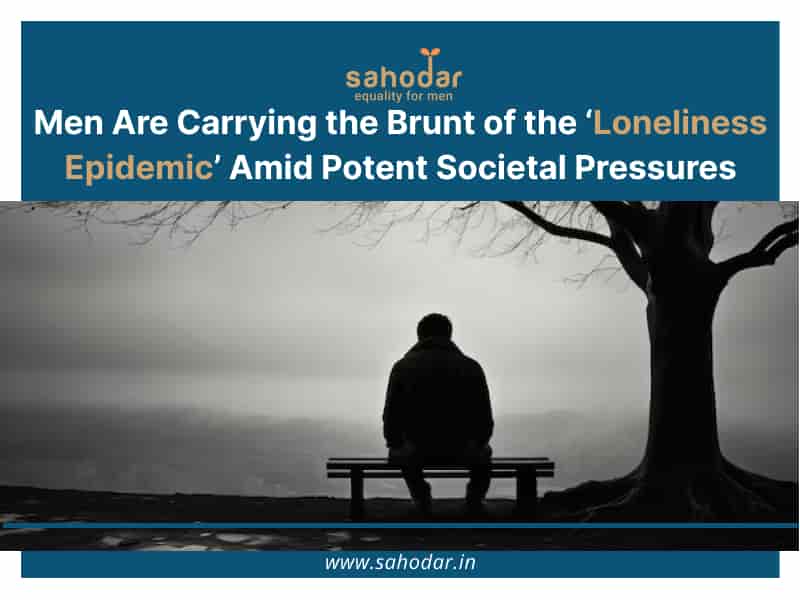In recent years, loneliness has emerged as a major public health concern. Often referred to as the “loneliness epidemic,” this issue is affecting people across all demographics, but men, in particular, seem to be carrying a disproportionate share of the burden. While loneliness is commonly associated with the elderly or those living alone, modern societal pressures and expectations are creating an especially challenging environment for men of all ages. Understanding the root causes of male loneliness and addressing these issues is crucial to mitigating its harmful effects.
Unique Loneliness of Men
The traditional image of masculinity emphasizes self-reliance, stoicism, and emotional restraint. While these traits have been praised historically, they also contribute to a culture where men are discouraged from forming and maintaining deep emotional connections. Many men struggle with sharing their feelings, seeking help, or expressing vulnerability, fearing it may be perceived as a weakness. Consequently, male friendships often lack the emotional depth that is found in their female counterparts, leaving men more isolated during times of stress, grief, or change.
Studies reveal that men tend to experience loneliness more intensely, even when surrounded by friends or family. This phenomenon is sometimes referred to as “crowded loneliness,” where one can appear socially active but feel deeply disconnected. The impact of this disconnection goes beyond just feeling alone; it has been linked to severe health outcomes, including higher rates of depression, anxiety, substance abuse, and even suicide.
Societal Expectations and Pressures
Several societal pressures exacerbate this problem, making it harder for men to forge meaningful relationships:
- Work-Centric Identity: Modern culture often equates a man’s worth with his professional success. As a result, men may focus intensely on their careers, neglecting personal relationships. When professional setbacks occur—such as job loss, retirement, or burnout—men often find themselves without a strong support network to turn to.
- Family and Marital Shifts: Many men build their primary emotional connections through romantic relationships or family. However, changes in family dynamics, such as divorce or separation, can leave men particularly vulnerable to isolation. Following a divorce, men are more likely to lose contact with mutual friends and family members, compounding feelings of loneliness.
- Friendship Decline Over Time: Research indicates that men’s friendships tend to wane as they age. While women often maintain friendships through shared emotional experiences, men’s friendships are often activity-based, such as watching sports or playing games. This can result in fewer friends as physical activities decrease with age or as priorities shift.
- Digital Isolation: The rise of social media and technology has created an illusion of connection, which can actually deepen feelings of loneliness. Many men turn to online communities, gaming, or other digital spaces for connection, but these interactions lack the emotional intimacy of real-life friendships.
The Health Impact of Male Loneliness
Loneliness is not just an emotional state; it has real physical consequences. Men experiencing chronic loneliness are at a higher risk of cardiovascular diseases, compromised immune systems, and higher stress levels. Some researchers suggest that loneliness can be as detrimental to health as smoking or obesity.
The mental health implications are equally alarming. Loneliness can lead to increased rates of depression, anxiety, and even suicidal thoughts. The stigma surrounding mental health and the traditional “strong, silent” archetype means that many men do not seek help when they need it the most. As a result, men are often overrepresented in statistics related to substance abuse and other self-destructive behaviours.
Addressing the Loneliness Epidemic Among Men
Tackling male loneliness requires a multi-faceted approach that addresses societal norms, cultural expectations, and individual behaviours:
- Redefining Masculinity: Society needs to expand its definition of masculinity to include emotional expressiveness, vulnerability, and the pursuit of meaningful relationships. Men should feel encouraged and empowered to reach out to others and share their struggles without fear of judgment.
- Promoting Mental Health Support: Normalizing mental health discussions for men is crucial. Therapy, counselling, and support groups tailored specifically for men can provide safe spaces to explore feelings and develop emotional resilience.
- Creating Opportunities for Connection: Organizations and communities can play a role in creating spaces where men can form meaningful connections. Group activities that emphasize cooperation, shared experiences, and open dialogue—whether through sports, hobbies, or professional networking—can foster deeper bonds.
- Encouraging Male Friendships: Men should be encouraged to prioritize and nurture their friendships throughout life. Learning to cultivate friendships that are not solely based on shared activities but also on mutual emotional support can provide a more stable support network.
Conclusion
The loneliness epidemic is real and affects everyone, but its impact on men is particularly pronounced due to societal expectations and a lack of support structures. Addressing this issue requires a shift in how we perceive masculinity and how we support men in building and maintaining meaningful relationships. By breaking down the barriers to emotional openness and fostering environments where men can connect genuinely, society can help alleviate this hidden crisis and promote healthier, happier lives for all.


Thank you
Excellent Writeup.